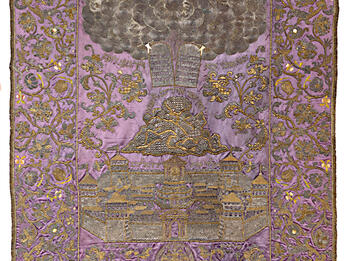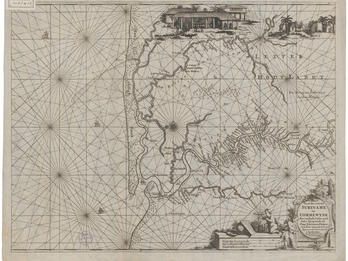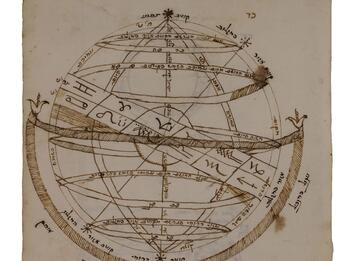Early Modern Historical Narratives
The early modern period saw a flourishing of Jewish historical writing in genres ranging from apologetic treatises to chronicles of specific events.
The early modern period, from 1500 to 1750, reveals a striking abundance of historical writing, striking, at least, in contrast to the relatively small number of such works written during the long Middle Ages.
We set the scene with two excerpts from works that are not part of explicitly historiographical discourse, although both of them are clearly connected to the history of the Jewish people and the political and social condition of the Jews at the time. The first of these, Discorso circa il stato de gl’Hebrei et in particolar dimoranti nell’inclita Città di Venetia (Discourse on the Condition of the Jews, and in Particular Those Living in the Fair City of Venice), was originally written in Italian and published in 1638 by Simone Luzzatto of Venice. The second, The Humble Addresses, was originally published in English, in 1655, by Menasseh Ben Israel of Amsterdam.
Luzzatto’s work is a brilliant sociological essay on the political, social, economic, and cultural state of the Jews in the world at the time. Its tone is apologetic, as it is meant, on the one hand, to show the benefit to society—in particular, the benefit to the Venetian Republic—brought by the Jews’ economic activity, and, on the other hand, to prove the unswerving loyalty of the Jews to the countries in which they live. Luzzatto wrote, in fact, to persuade the Venetian Senate not to expel the Jews from the city of Venice, a plan that was then under consideration. Menasseh Ben Israel, clearly influenced by Luzzatto’s work, was working on behalf of a number of Sephardic Jews in Amsterdam who wished to convince Oliver Cromwell to allow Jews to return to live in England, from which they had been expelled in 1290. Ben Israel’s text is remarkable for his global view of the contemporary condition of the Jews.
The Posen Library contains excerpts from historical narratives that relate in one form or another to the span of Jewish history in the diasporas—or to an even broader subject, as with Elijah Capsali’s Seder Eliyahu zuta (The Minor Order of Elijah), which tells the story of the Ottoman sultans, with special emphasis on the history of the Jews in the Ottoman Empire. Other passages in this section are drawn from works that focus on single historical episodes, such as the riots against the Jews of Poland and Ukraine in 1648 and 1649, the war between Poland and Russia, and the Swedish invasion of Poland.
The form—and content—of these accounts vary. Poetic laments appear alongside straightforward prose narrative, and while the vast majority of these historiographical works were originally written in Hebrew, others were written in Yiddish, Portuguese, Spanish, and Persian. Some texts continue traditional modes of preserving historical memory, such as Elijah Capsali’s Purim Scroll, which details the escape of the Jewish community in Crete from a local attack for a local memorialization in later years, or the chronicle of the Ibn Danan clan of Fez, an account written by several members of the family over many decades. But others are striking in their adherence to new modes of history writing.
Exiles from Spain and Portugal are prominent among the writers of histories in the first half of the sixteenth century. The forced conversions and exile suffered by the Iberian Jews likely gave rise to an urge to write about their own fate and the historical fate of the Jewish people in general. At the same time, because a considerable number of these works were written on Italian soil, or in places under the political and cultural influence of its states and cities, these authors were probably also influenced to a degree by the values of humanism and the spirit of the Renaissance, which reinvigorated the genre of historical writing and encouraged its flourishing.
Many of these historical accounts happen to commemorate tragic events, but the reader should not come away from this section with the sense that Jewish life during this period was unremittingly calamitous.



![M10 622 Manuscript, probably from Ukraine]. Manuscript probably from Ukraine, c. 1740 with a broad collection of practical kabbalah and mystical magic. Facing page manuscript arranged vertically with Hebrew text in the shape of a figure wielding two long objects.](/system/files/styles/entry_card_sm_1x/private/images/vol05/Posen5_blackandwhite166_color.jpg?h=cec7b3c9&itok=Sz6u21MQ)

